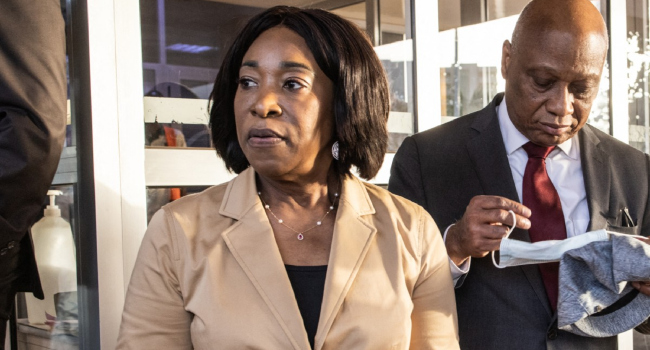Africa
Commonwealth Names Ghanaian Foreign Minister as Secretary General

In a historic appointment, Ghana’s Foreign Minister steps into the role of Commonwealth Secretary General. Discover the significance of this leadership shift and its implications for the Commonwealth’s future.
The Commonwealth, comprising 56 nations, named Ghana’s Foreign Minister Shirley Ayorkor Botchwey as the organization’s new Secretary General during a contentious summit that wrapped up in Samoa on Saturday.
The association, comprised mainly of former British colonies, is made up of sovereign states that join voluntarily.
Botchwey was one of three candidates competing for the position, all of whom have supported calls for Britain to address the legacy of colonialism and slavery.
Having previously served as a lawmaker, she has been the foreign minister for the past seven years. During this time, she notably oversaw Ghana’s two-year term on the UN Security Council, concluding in December 2023.
She has supported the creation of a free trade agreement among Commonwealth member states and has previously expressed her advocacy for reparations.
“Financial reparations are beneficial,” she stated at an event in London earlier this year.
A Commonwealth Secretary-General may serve up to two terms, each lasting four years. The current officeholder is Baroness Patricia Scotland from Dominica.
According to tradition, the position of secretary general is rotated among the organization’s four geographical blocs: the Pacific, Asia, Europe, and Africa. It was now Africa’s turn.
She expressed on social media her deep gratitude for the immense support from the Commonwealth Heads of Government in choosing her as the next Secretary-General of the Commonwealth.
“The real work is still to come!”
The Commonwealth advocates for democratic governance and fosters collaboration in trade, education, climate advocacy, and financial system transparency.
While King Charles III is at the helm, the secretary-general oversees the operations of the London-based secretariat.
READ ALSO: King Charles Hosts Commonwealth Leaders Reception in London
Botchwey’s appointment occurred at a summit in Samoa that was initially anticipated to concentrate on climate change. However, the meeting became entangled in divisive discussions about reparations instead.
Numerous nations in Africa, the Caribbean, and the Pacific are seeking financial compensation from Britain—and other European powers—for slavery or at least desire political reconciliation.
They are urging UK leaders to pledge to engage in discussions on reparatory justice, which might include financial compensation.
However, it’s a debate that Britain’s financially constrained government has made significant efforts to sidestep.
Prime Minister Philip Davis of The Bahamas stated in an interview with AFP that it is crucial to have a genuine conversation about the past.
“The moment has arrived for us to engage in a genuine discussion on how we can rectify these historical injustices,” he stated.
“Discussing reparatory justice may be challenging, yet it remains a crucial dialogue.”
The lasting trauma of slavery has deeply affected generations within our communities, and the struggle for justice and reparations continues.
Experts estimate that between 10 to 15 million slaves were taken from Africa to the Americas over a span of four centuries.
The exact numbers and the full human impact might remain unknown. This practice eventually ceased around 1870.
The British royal family, which profited from the slave trade for centuries, has encountered demands to offer an apology.
On Friday, King Charles did not go that far; instead, he urged summit delegates to “reject the language of division.”
He said, “I have come to understand, through listening to people from across the Commonwealth, how the most painful parts of our past continue to resonate.”
None of us can alter the past, but we can wholeheartedly dedicate ourselves to learning from it and discovering innovative ways to address persistent inequalities.
AFP
